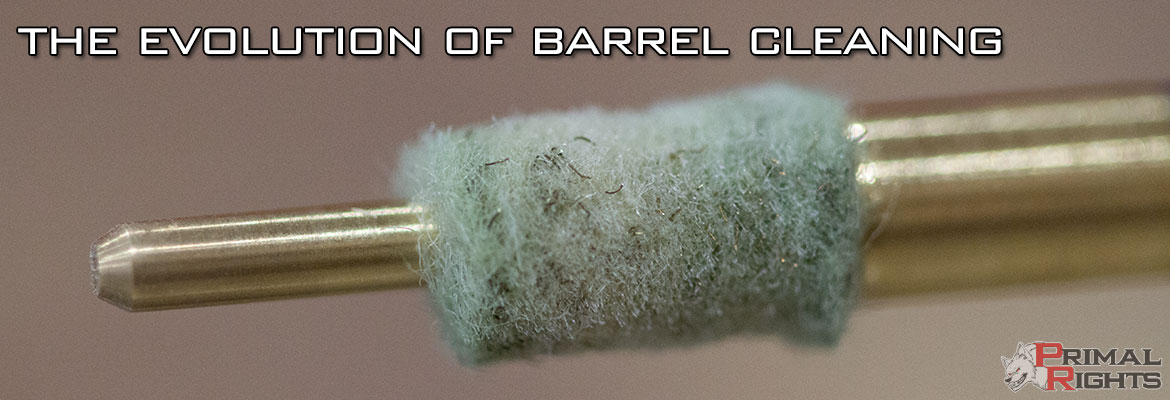Sounds like this message was written for you my friend: https://www.gunhive.com/news/bullets-from-the-bible-07-13-17.html
It's not my stuff that concerns me nearly as much as the pissed off wife...

Follow along with the video below to see how to install our site as a web app on your home screen.
Note: This feature may not be available in some browsers.
Sounds like this message was written for you my friend: https://www.gunhive.com/news/bullets-from-the-bible-07-13-17.html
I use KG products so I will try out KG12. It is one of the AI recommended cleaners. Their other cleaners and lubricants are some of the best I have ever used.
There are a few independent tests of KG12 and both demonstrated the amount of copper it removed from a jacketed bullet overnight was substantial. Competing copper solvents tested alongside KG12 removed little (IIRC not even 1/10th what KG12 removed) to none.
That said it's been hundreds and hundreds of rounds since I cleaned any of my match barrels. The most I've done is run a patch wet with oil then a dry patch, probably unnecessary with 416R barrels, but I was playing it safe. Until I see a drop in accuracy, I'll leave 'em alone.
Just digging around for the MSDS on KG-12, it contains a couple of acids, Hydrocyanic Acid, and Nitrobenzene Sulfonic Acid.
KG1 for carbon, KG12 for copper. Flush it with KG3, then one patch of light oil. Clean barrel in 10 mins. Less than 10 patches.

http://primalrights.com/library/articles/evolution-barrel-cleaning
There are so many different methods, tools, and opinions on rifle barrel cleaning that it would be virtually impossible to even mention them all. Barrel cleaning is quite possibly one of the most argued topics in the precision rifle world. The only thing more impressive than the number of discussions that take place regarding this topic on a daily basis is the list of available cleaning solvents which all claim to be the best product in the world. While conversations regarding barrel cleaning are often divisive and heated, there is one thing that everyone can agree on: Everyone will need to clean their barrel at some point.
READ MORE
Can you please go into more detail here and clarify? I've been using Bore-Tech Eliminator for a few years now, exclusively. And I've got no complaints. I do also have a dedicated copper fouling cleaner. But I've since retired it to the box of useless cleaners I no longer use. Because I've seen no difference in how the rifle shoots, nor in how "clean" I can get the bore with Eliminator vs dedicated and separate cleaners for each type of fouling. Using just one cleaner cuts my cleaning time down a lot. Simplifies the process. And I've seen no accuracy changes either way. So I figure... why not use the product that makes my life easier.
I want to correct my opinion of regular Boretech Eliminator. My worst copper magnet is a R700 25-06 with a Bartlien barrel. I was cleaning it again with boretech after 100 rounds and thinking about your use of it and wondering why it isn't working for me. So, I followed the instruction as usual but this time while it was good and wet I wrapped a .27-.35 Hoppe's patch around the nylon brush applied some BTE ran it through. I pushed the copper right out. Took a couple of passes and done. This is good news for me because I do prefer BTE because it is less caustic then other copper removers. I'm going to add this step right after where it states to let it sit for a few minutes. It also eliminates on the instructions where it states about twenty passes, which I always thought was very excessive. I also prefer the big bottle it comes in. Lasts a very long time. I'm still on the first bottle with a long ways to go and I can't remember when I bought it it was so long ago.
orkan, thank you for the CLR tip. My previous efforts to clean my brake were dismal at best. The stuff works good.
in case I have to do something in the hoes where my wife might be present

I just have to say that's an awesome typo.
Boretech makes good stuff. Both the CU+2 and C4 work very well.Has anyone tried Boretech's C4 carbon remover?
Would a nylon coated rod be safe to use with clr? Using a ss rod would make me nervous.
Why?
Wouldn't steel on steel cause more wear than nylon on steel?
What would be the procedure for cleaning a can with CLR? I've got an SAS ReaperMX (all titanium) that has a lot of carbon build up especially from using on a 300 BLK with subsonic loads.
Thanks in advance ...
Wouldn't steel on steel cause more wear than nylon on steel?
That answer depends on the hardness of the two steels in question.
Get academic about it if you like. In the real world pro-shot and ivy stainless rods work amazingly well. I played the dewey coated rod game as well as the tipton carbon fiber game... and I'd rather get whipped with both than to use either one in a rifle barrel ever again.
